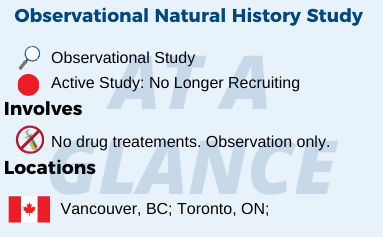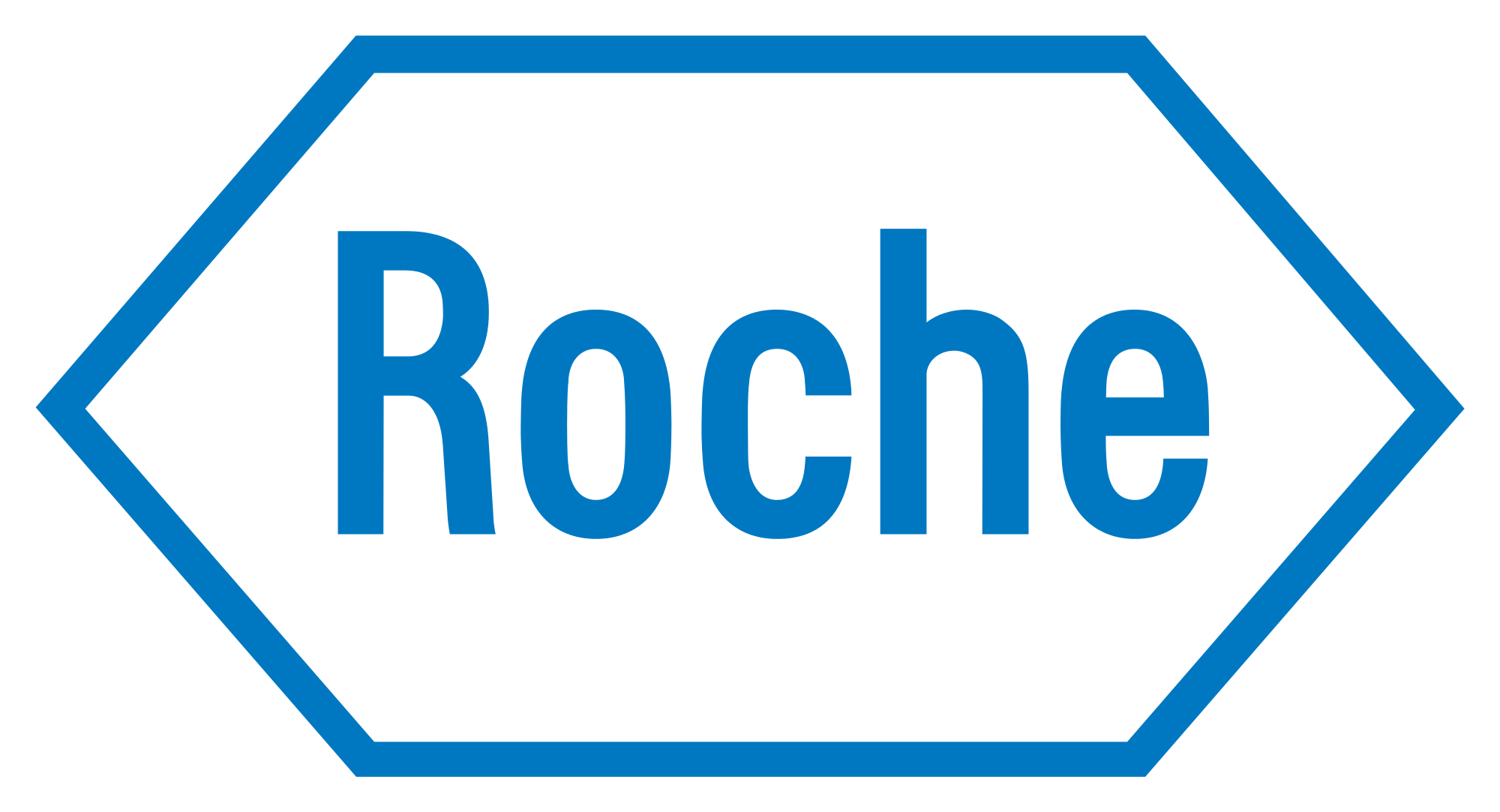Back to map
 This 15-month observational study aims to further understand the role of mHTT in disease progression. There is no drug treatment in this study, as the goal is to understand the natural progression of HD.
This 15-month observational study aims to further understand the role of mHTT in disease progression. There is no drug treatment in this study, as the goal is to understand the natural progression of HD.
This study will include up to 100 participants globally with early manifest (Stage I and II) HD at up to 17 sites in Canada, Germany, the UK and the US.
Status
Enrollment is closed.
Study Type
Observational
Canadian Locations
Ontario
Location: Centre for Movement Disorders, Toronto
1 Valleybrook Drive
Suite 400
Toronto, ON M3B 2S7
Coordinator: Susan Whyte
Phone: 416-847-7084, ext. 285
Status: Enrollment Closed.
British Columbia
Location: Centre for HD, UBC Hospital, Vancouver
Coordinator: Emma Peachey
Phone: 604-822-5898
Status: Enrollment Closed.
Inclusion Criteria:
- Capacity to consent to participate in the study as assessed using the Evaluation to Sign Consent tool and investigator judgment
- Age 25 to 65 years, inclusive, at the time of signing Informed Consent Form
- Early manifest, Stage I or Stage II HD (defined as TFC of 7-13, inclusive)
- Genetically confirmed disease (CAG repeat length ≥ 36 in huntingtin gene by direct DNA testing)
- Body mass index ≥18 and ≤32 kg/m2; total body weight >50 kg
- Ability to undergo and tolerate MRI scans
- Ability to tolerate blood draws and lumbar puncture
- Ability and willingness to comply with all aspects of the protocol, including completion of interviews and questionnaires and carrying/wearing of a digital monitoring device
- Stable medical, psychiatric, and neurological status for at least 12 weeks prior to screening and at the time of enrollment
- Signed study companion consent for participation, if a study companion is available
- For women of childbearing potential: agreement to remain abstinent or use acceptable contraceptive methods during the observational period
Exclusion Criteria:
- Any condition, including severe chorea, that would prevent either writing or performing pen and paper or smartphone-based tasks
- History of attempted suicide or suicidal ideation with plan (i.e., active suicidal ideation) that required hospital visit and/or change in level of care within 12 months prior to screening
- Current active psychosis, confusional state, or violent behavior
- Any serious medical condition or clinically significant laboratory, vital sign, or electrocardiogram abnormalities at screening that, in the investigator’s judgement, precludes the participant’s safe participation in and completion of the study
- Pregnant or breastfeeding, or intending to become pregnant during the study
- Positive for hepatitis C virus antibody or hepatitis B surface antigen at screening
- Known HIV infection
- Current or previous use of an antisense oligonucleotide (including small interfering RNA)
- Current use of antipsychotics prescribed for psychosis, cholinesterase inhibitors, memantine, amantadine, or riluzole including use within 12 weeks of enrollment
- Treatment with an investigational drug within 30 days prior to screening or 5 half-lives of the investigational drug, whichever is longer
- Antiplatelet or anticoagulant therapy within the 14 days prior to screening or anticipated use during the study, including, but not limited, to aspirin (unless ≤81mg/day), clopidogrel, dipyridamole, warfarin, dabigatran, rivaroxaban, and apixaban
- History of bleeding diathesis or coagulopathy; platelet count < lower limit of normal unless stable and assessed by the Investigator and Sponsor Medical Monitor to be not clinically significant
- Malignancy within 5 years prior to screening, except basal or squamous cell carcinoma of the skin or carcinoma in situ of the cervix that has been successfully treated
- History of gene therapy or cell transplantation or any other experimental brain surgery
- Concurrent or planned concurrent participation in any clinical study without approval of the Medical Monitor
- Presence of implanted shunt for the drainage of CSF or an implanted CNS catheter
- Pre-existing structural brain lesion as assessed by MRI scan
Verified February 7, 2019

